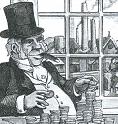|
I liked his Wisers commercial
|
|
|
|

|
| # ? Jun 4, 2024 02:52 |
|
Happy New Year, everyone! Worried about the left movement in Canada? Worry no more! There is a musical on the birth of Canada’s union rights coming out in 2019. And I will do my part in pushing the left pro labour agenda by sharing Canadian Labour Congress, Progress Canada, and anti-pipeline posts to passive-aggressively annoy my friends and family. https://youtu.be/5JllrjJ_XpQ https://www.facebook.com/100637830002335/posts/2056570651075700/ 🎶 Auld Lang Syn... 🎶
|
|
|
|
hny https://twitter.com/M_Ignatieff/status/1079786521681629184
|
|
|
|
Its amazing how even now he still manages to stand out as the worst leader the Liberals have had in my lifetime. Maybe longer.
|
|
|
|
my own beloved photographer
|
|
|
|
Furnaceface posted:Its amazing how even now he still manages to stand out as the worst leader the Liberals have had in my lifetime. Maybe longer. Dion was pretty close. If Trudeau Jr didnt finally do the pot thing he would be up there too. Is there someway we can make Chretien or Martin get back into politics?
|
|
|
|
the most canadian response https://twitter.com/paula_daoust/status/1079810466191474689
|
|
|
|
I dislike Dion a lot, as is known, but no loving way in hell he was worse than Ignatieff.
|
|
|
|
Furnaceface posted:Its amazing how even now he still manages to stand out as the worst leader the Liberals have had in my lifetime. Maybe longer. Chretien and Martin did more to hurt people living on the margins of society than probably any other national leaders have done done the establishment of the residential school system. Anyone here who do didn't like Harper but fondly remembers Chretien and Martin is deeply confused. If you're measurement of leadership is "how many people's lives got worse because of this government" then Chretien and Martin have gotta be at the top of the list at least in terms of the lifespans of most posters in this thread. zapplez posted:Dion was pretty close. If Trudeau Jr didnt finally do the pot thing he would be up there too. I too am really nostalgic for the government that eliminated a national standard for welfare and cut federal program spending for housing, healthcare and the like by billions and billions of dollars that were then redirected into taxcuts for rich people an corporations. PT6A posted:I dislike Dion a lot, as is known, but no loving way in hell he was worse than Ignatieff. How is Ignatieff meaningfully different from Trudeau?
|
|
|
|
It’s really tough to pick a best Liberal leader of my lifetime but I’m leaning toward giving Iggy the nod. He drat near killed the party, which is more than any other Liberal leader has ever done for me. Only other possibility is Dion for playing footsie with the idea of a coalition government I guess?
|
|
|
|
quote:Canada’s Harsh ‘Austerity’ Policies Started with Liberals Really great leadership by the Liberals cutting and raising eligibility requirements for practically every form of support for poor people while cutting taxes on income and capital gains and presiding over the origins of our asset-bubble driven consumer spending.
|
|
|
|
Best Liberal leader of our lifetimes was probably Tom Mulcair.
|
|
|
|
I don't know how many more times you're going to have to explain that the Liberals are literally the same thing as the Conservatives in almost every way before anyone in this thread understands it, dude.
|
|
|
|
Helsing posted:Chretien and Martin did more to hurt people living on the margins of society than probably any other national leaders have done done the establishment of the residential school system. Anyone here who do didn't like Harper but fondly remembers Chretien and Martin is deeply confused. I meant in terms of damage to the party itself. I am very aware and have been very vocal about my hatred for Chretien and the magnitude to which he attacked the social safety net of the country. But our media has done a loving amazing job at painting over all that so his legacy will never be seen as harmful to the country or the party. Martin will get less praise and media attention and most likely stuffed into the closet of history to be forgotten despite all the lovely rollbacks on regulations he oversaw. He too wont be seen as hurting the party though. ChairMaster posted:I don't know how many more times you're going to have to explain that the Liberals are literally the same thing as the Conservatives in almost every way before anyone in this thread understands it, dude. Most people here are well aware of the old "Campaign from the left, govern from the right." mantra the Liberals live by. Its just lost in todays toxic political climate. So much so that "slightly less lovely Conservatives" is apparently a bar too high for even our supposed left wing party to get over.
|
|
|
|
We've already had this argument like 10 times in this thread, but if you think Chretien and Martin were garbage PMs, I'd love to know what PMs you think were good in the past 20 or 30 years.
|
|
|
|
zapplez posted:We've already had this argument like 10 times in this thread, but if you think Chretien and Martin were garbage PMs, I'd love to know what PMs you think were good in the past 20 or 30 years. I hate to break it to ya but Chretien started his decade long reign of terror very nearly 30 years ago, so that leaves a whopping slate of Kim Campbell or Mulroney to choose from. 
|
|
|
|
zapplez posted:We've already had this argument like 10 times in this thread, but if you think Chretien and Martin were garbage PMs, I'd love to know what PMs you think were good in the past 20 or 30 years. Two decades where inequality got worse, life got less affordable, jobs became more precarious, housing prices skyrocketed to unsustainable highs and we collectively decided to shrug off any serious action on the environment represents and I'm not even allowed to have a serious political opinion unless I can say something nice about one of the Prime Ministers who was in office during that time?
|
|
|
|
lol
|
|
|
|
Helsing posted:Two decades where inequality got worse, life got less affordable, jobs became more precarious, housing prices skyrocketed to unsustainable highs and we collectively decided to shrug off any serious action on the environment represents and I'm not even allowed to have a serious political opinion unless I can say something nice about one of the Prime Ministers who was in office during that time? But you see the rich got richer  Ugh. People remembering fondly the Chrétien/Martin austerity years make my skin crawl. Those years were difficult for my family and the future looked bleak.
|
|
|
|
Someone has to be one of the better PMs since the 80s. Are we really saying Mulroney was the MVP? Or someone who wasn't even elected into office? Some serious "no good president" poo poo going on. Reminds me of the uspol threads where people try to say that jfk and Clinton were bad presidents. vincentpricesboner fucked around with this message at 00:30 on Jan 2, 2019 |
|
|
|
zapplez posted:Someone has to be one of the better PMs since the 80s. Feel free to provide a single loving reason why. While you're at it go ahead and explain why you think this country is headed anywhere different from where America is now while you're doing so, and why you think that a lot of that poo poo didn't start in the 80s.
|
|
|
|
the only good pm is a dead one
|
|
|
|
RBC posted:the only good pm is a dead one Even most of those were terrible.
|
|
|
|
zapplez posted:Reminds me of the uspol threads where people try to say that jfk and Clinton were bad presidents. Jesus Christ, the guy who wanted to invade Cuba, backed a coup in Iraq, escalated in Vietnam, and didn't give a poo poo about civil rights and waited until his hand was forced is almost as good as the rapist who destroyed the American welfare system, ramped up mass incarceration, invented the banking system that destroyed the country's economy, and was only popular because he could play saxophone and cheated on his horrible wife. It is in fact very possible for every American president to be bad, because America is a loving awful country whose leaders do not give a poo poo about it's people or the people of other nations, or of the world at large. They're the primary cause of the destruction of the loving world, you simple-minded child.
|
|
|
|
ChairMaster posted:It is in fact very possible for every American president to be bad, because America is a loving awful country whose leaders do not give a poo poo about it's people or the people of other nations, or of the world at large. This part applies to Canada too, by the way.
|
|
|
|
zapplez posted:We've already had this argument like 10 times in this thread, but if you think Chretien and Martin were garbage PMs, I'd love to know what PMs you think were good in the past 20 or 30 years. What are the good things Chretien and Martin did that made you think they were good PMs? BGrifter posted:It’s really tough to pick a best Liberal leader of my lifetime but I’m leaning toward giving Iggy the nod. He drat near killed the party, which is more than any other Liberal leader has ever done for me. Dion probably, for taking the environment seriously and being willing to form a coalition to oust Harper.
|
|
|
|
RBC posted:lol Something something about the overly played up relationship between Canadian identity and the land and all. But god drat. That there is a man who has never portaged a canoe in his life.
|
|
|
|
ChairMaster posted:Jesus Christ, the guy who wanted to invade Cuba, backed a coup in Iraq, escalated in Vietnam, and didn't give a poo poo about civil rights and waited until his hand was forced is almost as good as the rapist who destroyed the American welfare system, ramped up mass incarceration, invented the banking system that destroyed the country's economy, and was only popular because he could play saxophone and cheated on his horrible wife. Blues & Greens. Beware anyone unwilling or unable to admit that whomever they prefer may be filled with shitlords, and just parrot the populist messaging of their preferred team. These types and their voting patterns are why democracy has largely collapsed in the west. See also: Obama. Rime fucked around with this message at 01:00 on Jan 2, 2019 |
|
|
|
vyelkin posted:What are the good things Chretien and Martin did that made you think they were good PMs? Well for one I thought they were better than Harper or Mulroney or Trudeau Jr. When everything is subpar, there still has to be a best of a lovely bunch.
|
|
|
|
zapplez posted:Well for one I thought they were better than Harper or Mulroney or Trudeau Jr. When everything is subpar, there still has to be a best of a lovely bunch. pick your favorite STD
|
|
|
|
zapplez posted:Well for one I thought they were better than Harper or Mulroney or Trudeau Jr. When everything is subpar, there still has to be a best of a lovely bunch. What specific things did they do that were better?
|
|
|
|
vyelkin posted:What specific things did they do that were better? Didn't get Canada involved in Iraq
|
|
|
|
zapplez posted:Well for one I thought they were better than Harper or Mulroney or Trudeau Jr. When everything is subpar, there still has to be a best of a lovely bunch. Yeah, but you used 'good' as a descriptor. Being the best of a bunch of shitheels still doesn't make you 'good'.
|
|
|
|
vyelkin posted:What specific things did they do that were better? Legalized gay marriage For all the Libs are just as bad as the Cons cynicism remember that the one place the conservatives are unequivocally worse is social justice.
|
|
|
|
Being slightly better than the worst people in the world is nothing to brag about. You're letting them get away with atrocities as long as they play to your favorite particular social issue of the moment, even if they take years and years to do anything meaningful about it while actively loving over as many vulnerable people as they can.
|
|
|
|
Tochiazuma posted:Yeah, but you used 'good' as a descriptor. Being the best of a bunch of shitheels still doesn't make you 'good'. Really depends how you use the English language. Like, whens the "best" time to get a flat tire? Its kinda like how Canada is a pretty good country. Sure, we have 1000 problems, but when you compare this country to the rest in the world, we are definitely in that top 10%. ChairMaster posted:Being slightly better than the worst people in the world is nothing to brag about. You're letting them get away with atrocities as long as they play to your favorite particular social issue of the moment, even if they take years and years to do anything meaningful about it while actively loving over as many vulnerable people as they can. I have no idea what Chretien did that was pandering to a social issue. Unless you count the Shawinigan Handshake, which was probably my fav political moment of the 90s.
|
|
|
|
You can mostly thank the courts for same sex marriage in Canada. The Liberals were following the Supreme Court's instructions when they enacted the Civil Marriage Act.Wikipedia posted:Between 2002 and 2005, courts in several provinces and one territory ruled that restricting marriage to opposite-sex couples constitutes a form of discrimination that is prohibited by Section 15 of the Charter of Rights and Freedoms, and struck down the federal definition, requiring that those jurisdictions register same-sex marriages. The first ruling required the Federal Government to draft legislation recognizing same-sex marriage, but later rulings brought the new definition into effect immediately in the jurisdictions concerned. Canadian jurisdictions thereby became the third in the world to allow same-sex marriage, after the Netherlands and Belgium. By July 2005, same-sex marriages were legally recognized in all provinces and territories except Alberta, Prince Edward Island, the Northwest Territories and Nunavut, encompassing over 85% of Canada's population of roughly 31 million people.
|
|
|
|
I'm saying there's no need to be an absolute loving moron and ignore the ways the Conservatives are actively more harmful. The Liberals are bad both fiscally and socially, but they are by any objective measure less bad than the Conservatives.Helsing posted:You can mostly thank the courts for same sex marriage in Canada. The Liberals were following the Supreme Court's instructions when they enacted the Civil Marriage Act. Again, the difference is they didn't fight it. There are still Conservatives that are to this day talking about repealing gay marriage.
|
|
|
|
Helsing posted:You can mostly thank the courts for same sex marriage in Canada. The Liberals were following the Supreme Court's instructions when they enacted the Civil Marriage Act. Its still pretty disingenuous to say Libs and CPC are exactly the same degree of bad. Hell, you still have idiots that are sitting MPs for the CPCs that like to ponder about reopening the abortion debate.
|
|
|
|

|
| # ? Jun 4, 2024 02:52 |
|
Wow no poo poo, it's almost like a dozen people have been saying "the Liberals are the same poo poo as the CPC except they pretend not to be racist, sexist, and homophobic" for years and years in this thread. You sure are proving a point contrary to that, or arguing with a person who definitely exists, and not just defending the second worst people around for no good loving reason at all.
|
|
|



























